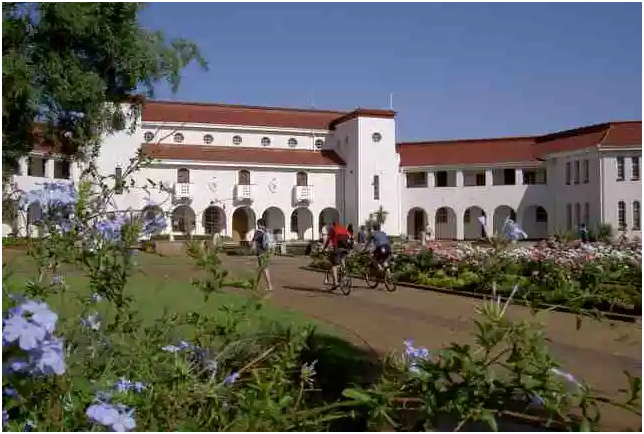Over the past few years, there were not nearly enough school-leaving applicants who met the minimum requirements for tertiary fields of study such as Engineering, Natural Sciences, Economic Sciences and Health Sciences. this is according to Elza Hattingh from the Faculty of Engineering at the North-West University (NWU). She heads the faculty’s Xcel programme – an initiative that offers a second chance to students who want to improve their previous Grade 12 Senior Certificate exam results in Mathematics and Physical Sciences.
In 2016, Hattingh welcomed the first 12 students who wanted supplementary schooling, with the aim of improving their matric results at the end of the year to get a better chance of admission to a university. Today, many students have reaped the rewards, with some students who have already graduated and are currently working in the industry or pursuing further studies.

According to the National Senior Certificate (NSC) Diagnostic Report 1 of 2021, only 35.6% of the total number of matriculants who enrolled for Mathematics in Grade 12 achieved scores higher than 40% in the NSC Mathematics exam in 2021. This means that 64,4% of the matriculants attained less than 40% in Mathematics. This group of school-leavers has no chance to consider a career in the sciences.
“The reasons for these students’ poor school results in Mathematics and Physical Sciences range from inadequate school-level education, to difficult domestic conditions, unbalanced dedication to sports participation, illness or the lack of academic purposefulness during Grade 12. Of even greater concern is the small percentage of matriculants who meet the Engineering programme requirements. For example, only 3,8% of the matrics who wrote Mathematics and only 4,4% of those who wrote Physical Sciences met the Engineering programme requirements,” Hattingh says.
After seven years, the Xcel programme proved itself to be a runaway success and achieved above-expected results. The NSC academic results from 2020 to 2022 were as follows:
…
“We have a strict selection process for those who want to enrol for the Xcel programme, because we want to be sure that the selected students are truly serious about improving their previous results. We also make sure their goals are realistic and emphasise the seriousness and hard work that the programme entails,” Hattingh says.
In 2020, 46 students were actively involved in the Xcel programme. No less than 65% of these students (30 students) were accepted for the Engineering programmes at the NWU and 30% (14 students) were accepted for BSc programmes at the NWU. Two students were accepted for Pharmacy and one for Law. In total, 26 distinctions were achieved.
In 2021, 32 students enrolled in the Xcel programme. 81% (26 students) were accepted in the Faculty of Engineering, and 19% (six students) were accepted in the Faculty of Natural Sciences. only two students in the Xcel group did not meet the minimum requirements for Engineering studies.
“Here the students have to decide how hard they are willing to work to gain access to a professional qualification. We have chosen the right lecturers for this great task and I can honestly say they are doing a phenomenal job. They make sure the students perform to the best of their abilities,” she says.
Although the programme is offered at the NWU, the Grade 12 national preliminary examination and final Grade 12 Senior Certificate examination are conducted under the supervision of the Department of Basic Education at a neighbouring high school.
“It is so nice to go to work knowing you are doing something for someone that will turn their lives around. That is very rewarding! To see learners with limited university admission walk out here after a few years with a high-level academic qualification is an absolute privilege,” Hattingh concludes.
The requirements to be considered for the Xcel program are the following:
At least 40% for Mathematics and Physical Science in Grades 11 and 12
must have passed matric with university exemption
must have at least 60% for their language of study (Afrikaans/English) to be able to enrol for the subjects AGLE 111 and AGLE 121
not older than 22 years
did not write the NSC more than three years previously







